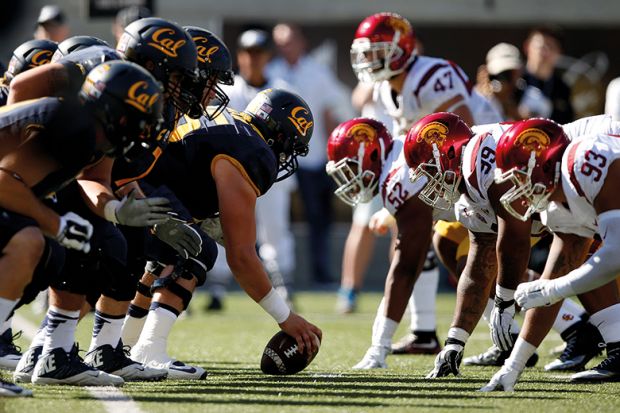The long-running battle to oust high-cost subscription journals from the world of research is at a showdown moment, with a leading US university system set to break from the globe’s biggest academic publisher.
The University of California system is down to the final weeks of its $11 million (£8.8 million) per year contract with Elsevier and, with negotiations stalled, it has begun telling its faculty to brace for impact.
“We’re just giving them a heads-up,” Virginia Steel, the head librarian at the University of California, Los Angeles, said of a letter from her office advising UCLA researchers of options such as interlibrary loans that they may need to use to read Elsevier titles in 2019.
If the California system cannot reach a negotiating breakthrough by 1 January, it would bolster a list of at least 45 universities and systems worldwide that have dumped a major journal publisher in the past decade.
They include national academic library systems in Germany and Sweden, which cut off Elsevier over costs earlier this year. Alongside those, the California system looms as one of the biggest on that list, as compiled by the Scholarly Publishing and Academic Resources Coalition. It’s another clear sign that the tide is turning in favour of lower-cost open-access models, said Heather Joseph, executive director of the publishing coalition.
“US libraries are really starting to get serious about cancelling Elsevier and other commercial publisher journal subscription bundles,” said Ms Joseph, whose group represents about 200 academic research libraries lobbying for open-access journals.
The credibility of a threat against Elsevier by an influential system such as the University of California is helped, Ms Joseph said, by the steady improvement in online article search tools and sharing methods. “Subscription costs just keep rising, and libraries seem to have finally hit the price wall,” she said.
The baseline level of opposition, however, is driven by a sense among university leaders that high subscription charges are simply unreasonable, given that the universities and taxpayers finance the researchers who largely write, select and edit the scientific articles contained within the journals.
Elsevier, which has 2,500 titles, is the most criticised academic publisher, given that for the services it provides – such as additional editing, printing and distributing – it reaps an operating profit margin of nearly 37 per cent on more than $3 billion in annual revenue.
With open-access formats, researchers pay publishers a fee for the cost of processing articles, with the articles then freely available to any readers.
That fee is also a point of negotiation in the Elsevier-California dispute, given that Elsevier is increasing the number of its own open access titles. Such author-paid fees now total about $1 million annually across the University of California system.
In its letter to academics, the UCLA library says that academics should consider declining to review articles for Elsevier journals “until negotiations are clearly moving in a productive direction”. Scholars could also consider publishing their work elsewhere, “including prestigious open access journals”, the letter adds.
Tom Reller, Elsevier’s vice-president for global communications, said that the company had made “pragmatic” offers to the California system but that institutions wanted “to only pay a nominal amount to access the world’s subscribed content”.
“The reality is that while we support open access, subscribed content comprises 85 per cent of scholarly output and continues to grow because most researchers choose to publish for free in subscription,” Mr Reller said. “Therefore, while we want to help [the California system] promote open access on the campuses, it is important that [the libraries] also pay a reasonable amount for subscribed content.”




